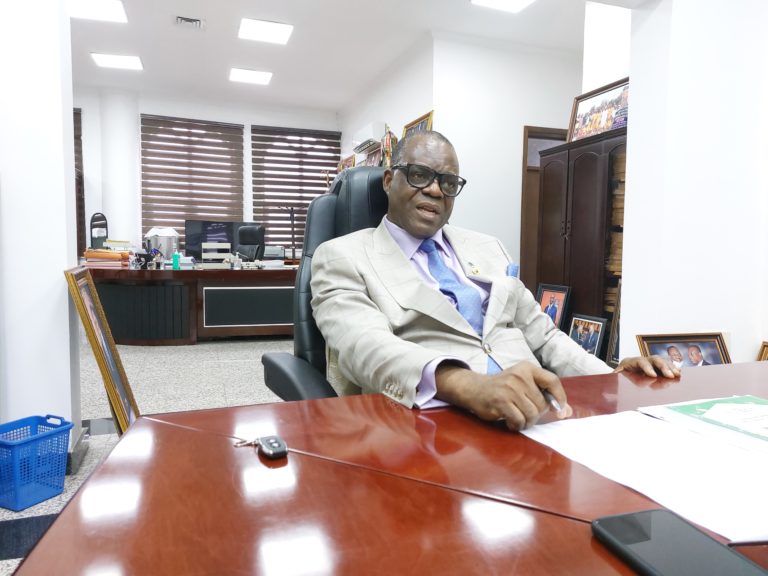
The Chief Judge (CJ) of the Federal High Court, Justice John T. Tsoho has lamented over the passage of the amended Electoral Act 2022 without any consultation with the judiciary leading to increased responsibility and a heavy burden on the operation of the judiciary.
Justice Tsoho made the revelation on Monday in a special court session to mark the commencement of the Federal High court legal Year 2022/2023.
The CJ added that in response to the enormous task of the time-bound responsibility of the new electoral act, a special task force had to be constituted for the swift disposal of pre-elections matters.
According to Tsoho, a total of 1,848 pre-election cases were filed and 1, 285 were disposed of, leaving a total of 556 pending.
He stressed that these were the additional burden thrust upon the court by the electoral acts.
Tsoho explained that within the 2021/2022 legal year, a total of 17,677 cases were filed, while a total of 13,906 were disposed of.
He added that a total of 131,821 cases were pending from last year bringing the total to 135,592 pending cases at the end of the legal year.
According to justice Tsoho, 41,788 are civil cases; 31,832 are criminal cases; 39, 799 are motions and 22,173 are fundamental rights enforcement applications pending at the end of the legal year.
Meanwhile, The Body of the Senior Advocate of Nigeria (BOSAN), has called for the establishment of specialised courts for a speedy resolution of constitutional and political matters in the country.
The Representative of BOSAN, Asiwaju Awomolo (SAN) in his speech said: “We have reached a stage where very urgently, the Parliament, Judiciary and stakeholders in the administration of Justice should consider the establishment of the National Constitutional court of Nigeria.
“The Constitutional court is one that will handle all constitutional, political and election matters. It will be a Federal Court of the status of a High court with divisions in all the states of the federation and the Federal Capital Territory (FCT).
“The Court will have unlimited jurisdiction to determine all causes relating to the enforcement of or connected with the interpretation of the Constitution, the enforcement of fundamental rights of the citizens, determination as to whether any person has been lawfully elected into any office from the President, to the state governors and members of all the Legislative houses.”
He also explained that the Court would be like the National Industrial Court of Nigeria that exercises jurisdiction on matters related to employment and other industrial-related matters.
Awomolo further explained that all the decisions of the court will be appealable to the Court of Appeal and all appeals will end at the Court of Appeal. Explaining that when established, there will no longer be the need to take away about 500 judges from their normal court responsibilities to sit on Election Tribunals all over the country.
The senior lawyer said: “There exist constitutional courts in many countries of the world, where such jurisdictions as proposed function effectively to relieve regular courts of political cases.”
“For example, countries like India, South Africa, South Korea, Egypt, Zambia, Ireland, Spain, Portugal, Italy and Germany. In all these countries, records are available to show that constitutional courts have become a solution that enhances jurisprudence, specialisation and promotion of political stability through judicial interventions.”
He continued: “Nigeria is perhaps the only country in the world where litigation on political disputes including election causes is the highest in the world.”
The Minister of Justice and Attorney General of the Federation (AGF), Abubarkar Malami also reiterated his commitment to proper funding of the court to improve justice administration in the country.
Malami urged the court to extend the use of tribunals as done in political cases to speedily dispose of corruption cases.
He said: “It is my considered advisory that the fast-track innovations that were introduced in the electoral cases should also be extended to certain cases which are of high economic or commercial importance given the ripple effects of delay in the conclusion of such cases.
“I sincerely appreciate the peculiar constraints and challenges, which our judges face in delivering these mandates, especially with regards to lack of basic resources to facilitate optimal performance and improved remuneration regime. We cannot but appreciate the distinguished judges for their sacrifices and tireless efforts with regard to the administration of justice in Nigeria.”
[ad unit=2]






